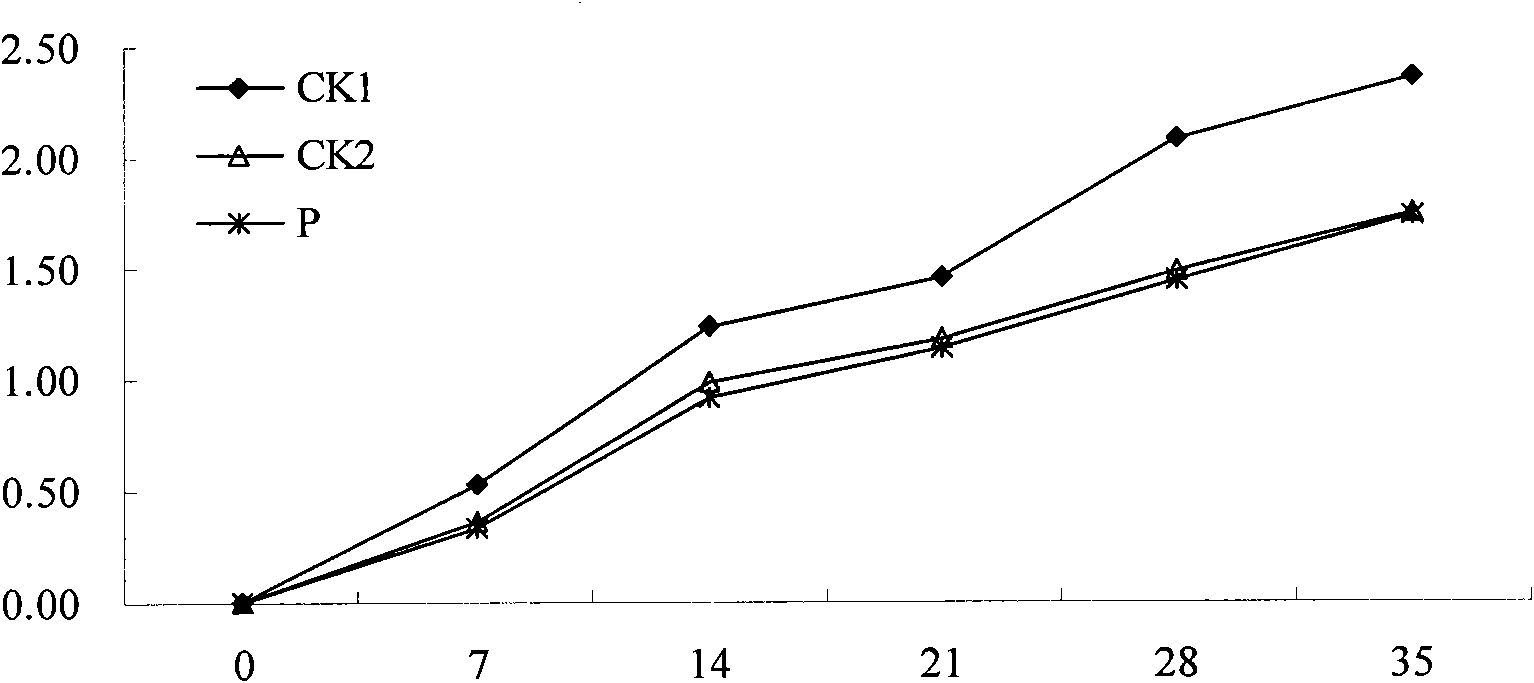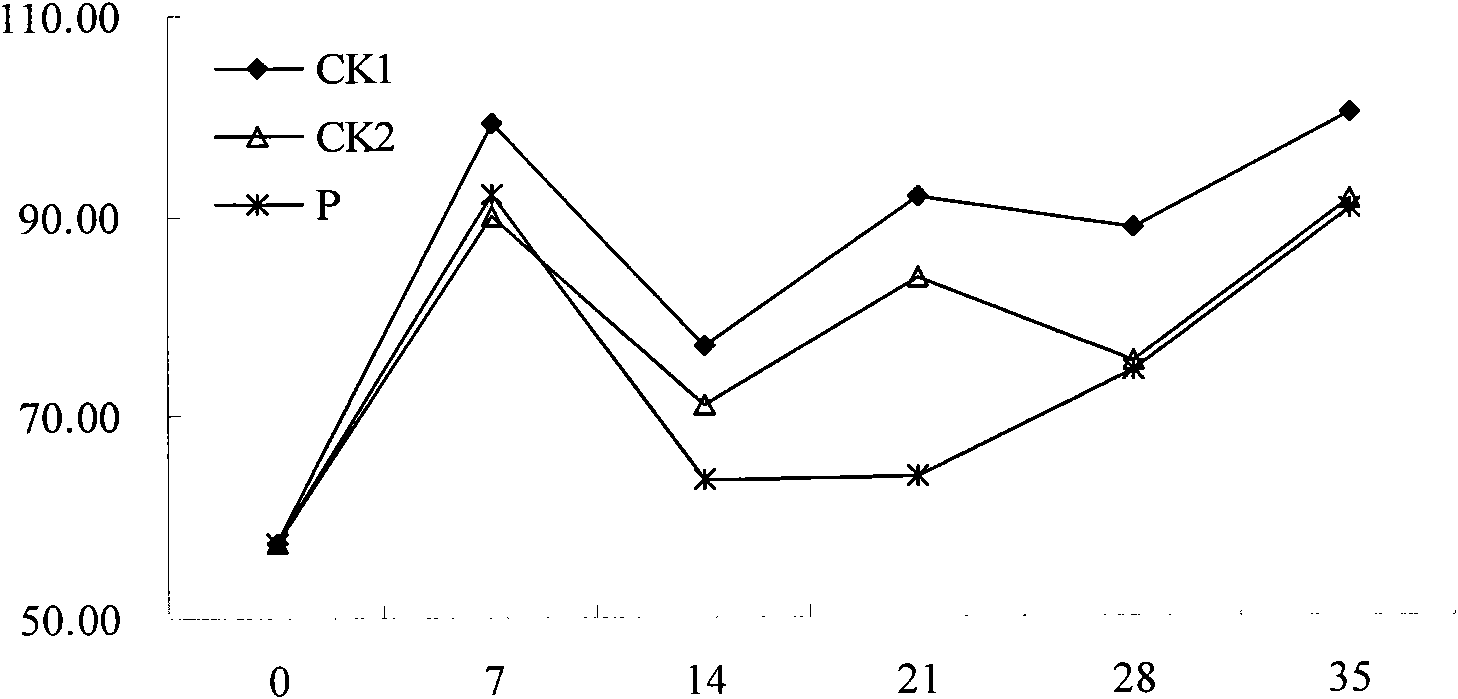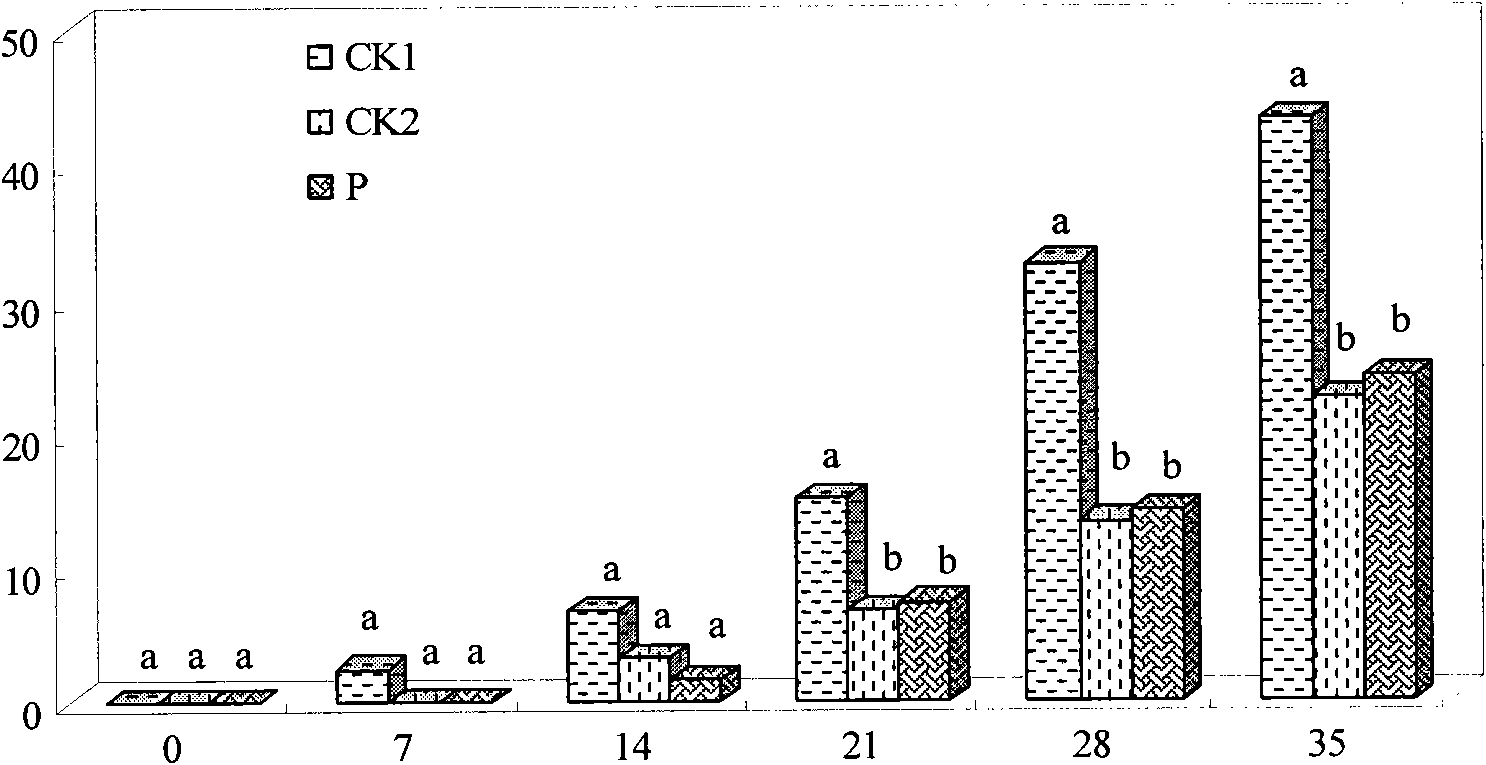Natural preservative for nectarine and application thereof
A preservative, nectarine technology, applied in application, fruit and vegetable preservation, food preservation, etc., can solve the problems of drug resistance of pathogenic bacteria, threat to human health, environmental pollution, etc., to prolong the preservation period and inhibit the increase of permeability , the effect of reducing the intensity of breathing
- Summary
- Abstract
- Description
- Claims
- Application Information
AI Technical Summary
Problems solved by technology
Method used
Image
Examples
Embodiment 1
[0024] The preparation embodiment of embodiment 1 antistaling agent
[0025] A kind of nectarine natural antistaling agent, by g / L and by pure amount, its component and consumption are as follows: 10.2 parts of tea polyphenols, 12 parts of tea saponin, vitamin C (in another parallel embodiment is oxalic acid ) 0.6 parts, add distilled water to 1L.
[0026] Prepare as follows:
[0027] (1) Tea saponin self-made process: Dry the collected Camellia oleifera seeds at 105°C until the water content is less than 5%, and pass through a 40-mesh sieve after crushing; after petroleum ether is refluxed and degreased, water is used as a solvent, and the ratio of solid to liquid is 1 : 25 (w / v) reflux extraction for 0.5h, repeat once, combine two filtrates, concentrate to 1 / 3 of the original volume at 60°C, -0.1Mp, use w / w as 2% aluminum sulfate flocculation, Centrifuge to remove impurities such as protein and tannin. After the supernatant is concentrated, it is absorbed by a macroporous ...
Embodiment 2
[0033] Embodiment 2: application embodiment
[0034] 1. Antibacterial test of tea polyphenols and tea saponin
[0035] (1) The study of growth rate method shows that tea polyphenols and tea saponin have significant effects on brown rot fungus (M. Antibacterial effect, the minimum inhibitory concentration (MIC) of tea polyphenols to these two pathogenic bacteria was 19.6g / L, 58.8g / L, and the effective medium concentration (EC 50 ) were 10.2g / L and 7.6g / L respectively, and the MICs of tea saponin to these two pathogenic bacteria were 32.8g / L and 32.8g / L respectively, EC 50 They are 6.0g / L and 1.2g / L respectively.
[0036] (2) Using the co-toxicity factor method (SunYP (Sun Yunpei), Johnson ER. Analysis of joint action of insecticides against houseflies. Economic Entomology, 1960, 53: 887-892.) Research shows that tea polyphenols, tea saponin according to w After the ratio of / w is 3.4:4.0, the antibacterial effect on M. fructicola and R. stolonifer can be obviously enhanced. ...
PUM
 Login to View More
Login to View More Abstract
Description
Claims
Application Information
 Login to View More
Login to View More - R&D
- Intellectual Property
- Life Sciences
- Materials
- Tech Scout
- Unparalleled Data Quality
- Higher Quality Content
- 60% Fewer Hallucinations
Browse by: Latest US Patents, China's latest patents, Technical Efficacy Thesaurus, Application Domain, Technology Topic, Popular Technical Reports.
© 2025 PatSnap. All rights reserved.Legal|Privacy policy|Modern Slavery Act Transparency Statement|Sitemap|About US| Contact US: help@patsnap.com



